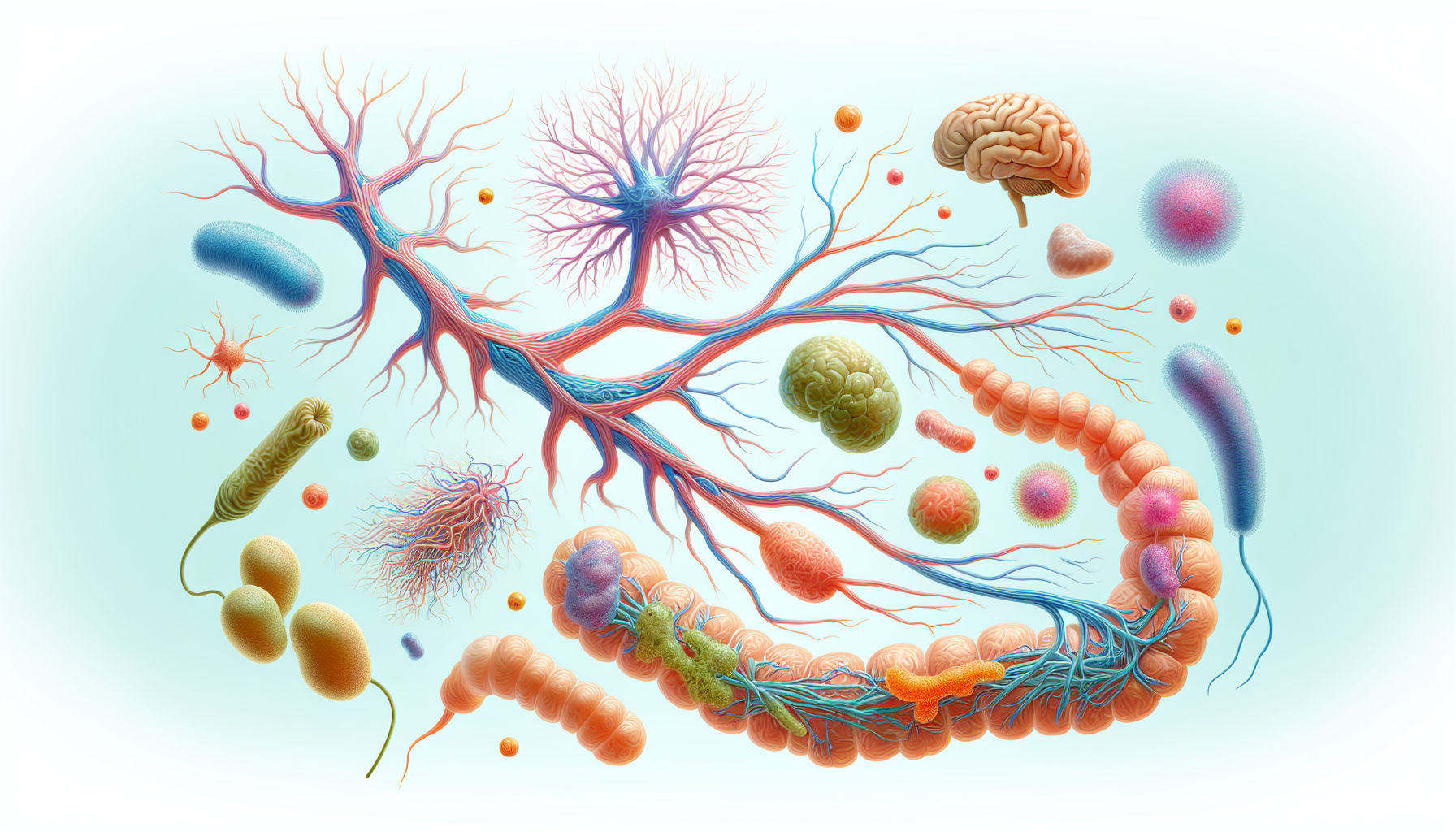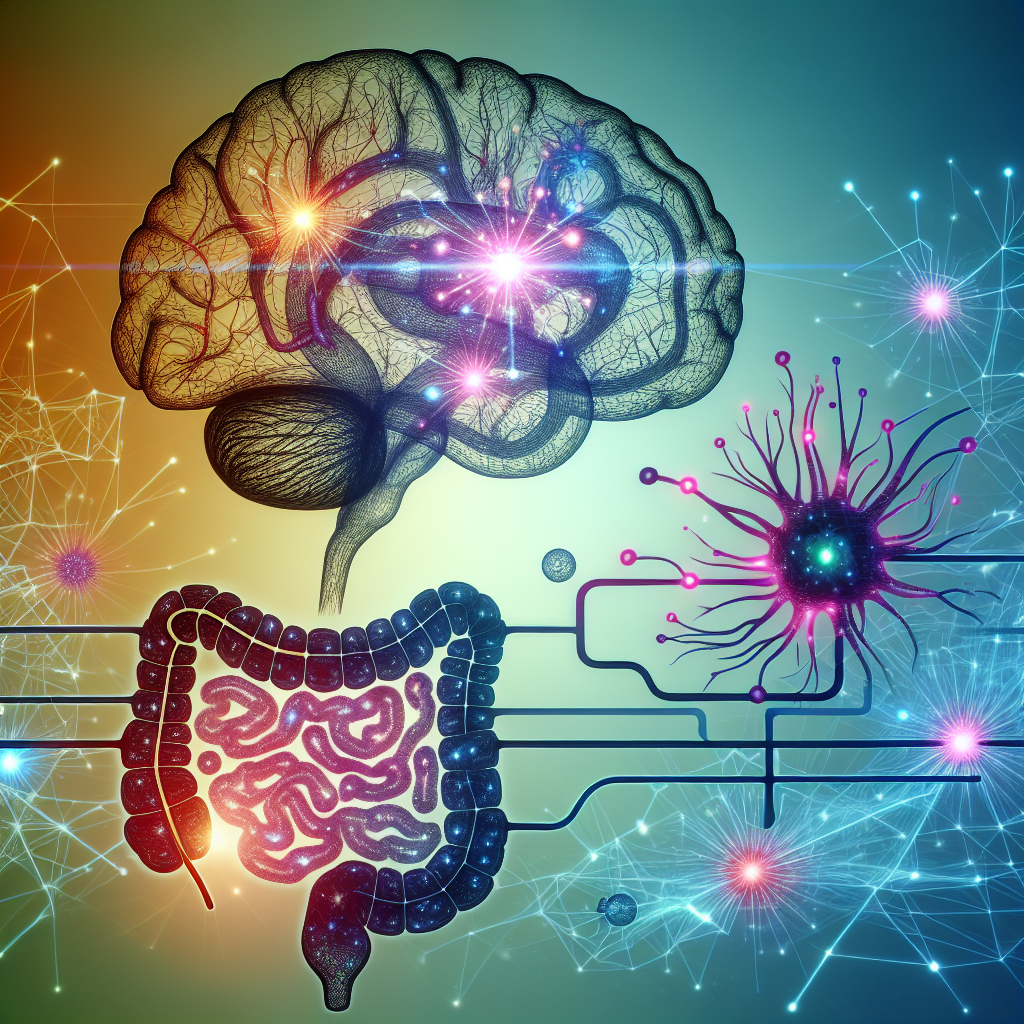The gut-brain axis represents the bidirectional communication network that connects your gastrointestinal tract with your brain. The health of this axis is pivotal to our overall well-being, affecting everything from mood to immune system functionality. As we unravel the complexities of this connection, it becomes clear that a healthy gut is not just about digestion—it’s about maintaining a balanced dialogue with our brain.
Understanding the Gut-Brain Axis
The gut-brain axis incorporates a multitude of pathways, including the vagus nerve, the enteric nervous system (ENS), and various neuroimmune and neuroendocrine mechanisms. The ENS, sometimes called the "second brain," consists of millions of neurons that govern gut function. Meanwhile, the gut microbiota—trillions of bacteria residing in the gut—also plays a crucial role, producing metabolites that can affect brain function and behavior.
Recent research suggests that disruptions in the gut-brain axis could be linked to a range of conditions, from digestive health issues to neurological and psychiatric disorders. Understanding how to maintain and assess the health of this axis is therefore essential for both prevention and intervention strategies.
The Impact of Diet on the Gut-Brain Axis
What we eat has a profound impact on our gut microbiome and, by extension, on the gut-brain axis. Diets rich in fiber, such as vegetarian diets, can promote a diverse and healthy microbiome, which in turn supports a robust gut-brain dialogue. Prebiotic and probiotic foods are particularly beneficial in fostering a healthy gut environment, offering protection against the dysregulation of this axis.
Conversely, diets high in processed foods and sugars can lead to an imbalance in gut bacteria. This dysbiosis can trigger inflammation and may disturb the gut-brain communication, potentially leading to mood disorders, cognitive problems, and other health issues.
The Role of Probiotics in Gut-Brain Health
Probiotics are live microorganisms that, when administered in adequate amounts, confer a health benefit on the host. They are a cornerstone of advances in probiotic therapy for digestive disorders and are increasingly recognized for their potential in maintaining a healthy gut-brain axis. Probiotics can modulate the microbiome and influence the production of neurotransmitters and other bioactive compounds that play a role in brain health.
Assessing the Health of Your Gut-Brain Axis
To assess the health of the gut-brain axis, it’s important to consider both digestive and psychological well-being. Symptoms like chronic bloating, digestive discomfort, and irregular bowel movements can indicate gut issues, while stress, anxiety, and mood swings may reflect disruptions in the brain’s communication with the gut.
Here are steps to assess and maintain a healthy gut-brain axis:
Monitor Digestive Health
Keep track of digestive symptoms and consider consulting a healthcare professional if issues like irregular bowel movements or bloating persist. Resources such as the Monash University’s FODMAP diet provide guidance on managing digestive symptoms through diet.
Evaluate Mental Well-being
Mental health is intricately linked to gut health. Practices like mindfulness and stress-reduction techniques can help maintain a healthy gut-brain relationship.
Dietary Considerations
Incorporate a diet rich in whole foods, fibers, and fermented products to encourage a healthy microbiome. Avoid excessive consumption of processed foods and sugars that can disrupt this balance.
Probiotic and Prebiotic Supplementation
Consider adding probiotic and prebiotic supplements to your diet to support the microbiome. However, it’s important to choose strains that have been clinically validated for their health benefits. The International Scientific Association for Probiotics and Prebiotics (ISAPP) offers resources on effective probiotic and prebiotic use.
Regular Physical Activity
Exercise has been shown to positively influence gut microbiota diversity and, as a result, may benefit the gut-brain axis. Engaging in regular physical activity is a key component of fitness that can contribute to both gut and brain health.
Sleep Hygiene
Quality sleep is essential for gut health and can impact the gut-brain axis. Poor sleep patterns can negatively affect gut flora and increase the risk of inflammatory conditions.
Medical Consultation
For individuals experiencing persistent issues, a consultation with a gastroenterologist or a neurologist may be necessary. These specialists can offer targeted advice and interventions to support the gut-brain axis.
The Future of Gut-Brain Axis Research
Advancing our understanding of the gut-brain axis opens up new possibilities for treating a wide range of conditions. Ongoing research into this field promises to deliver more targeted interventions, such as personalized probiotics tailored to individual microbiomes, and a better understanding of how dietary patterns can protect or harm this delicate balance.
In conclusion, the health of the gut-brain axis is integral to our overall well-being. Through careful assessment and maintenance of gut health, diet, and lifestyle, we can support this vital connection and improve our physical and mental health. As research continues to evolve, we may see new and innovative ways to diagnose and treat disorders associated with disruptions in the gut-brain axis, leading to more comprehensive approaches to health and wellness.



